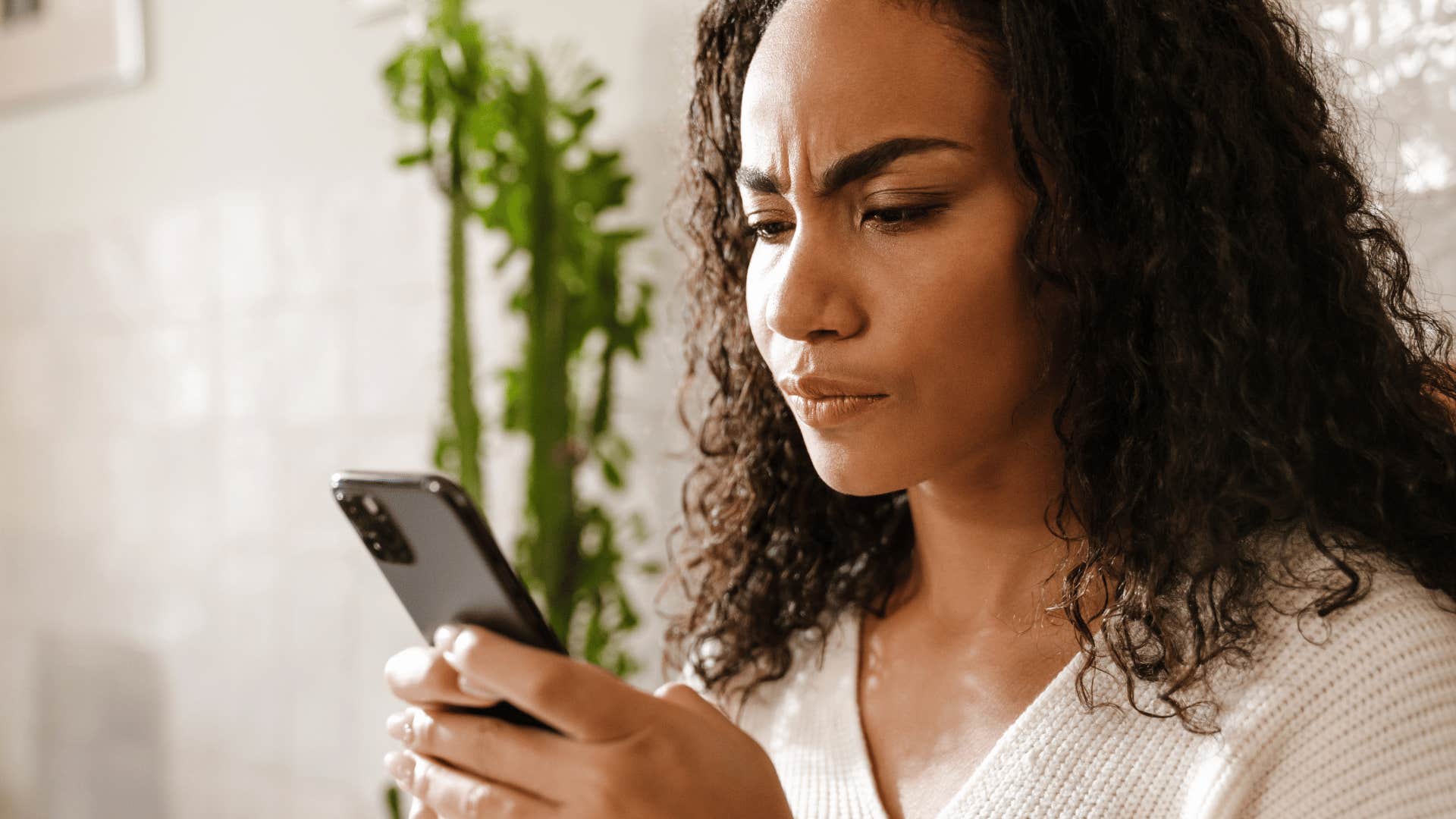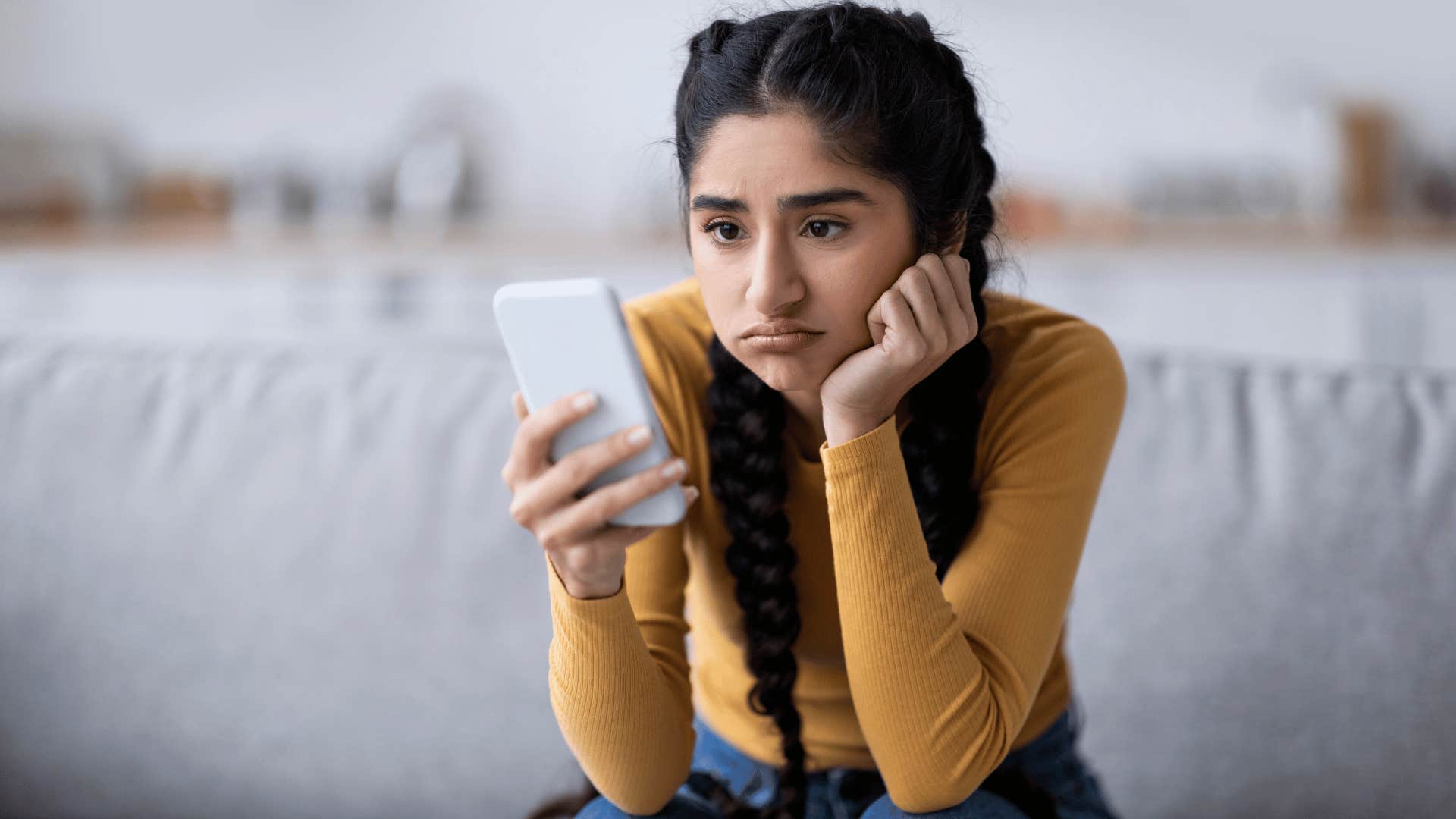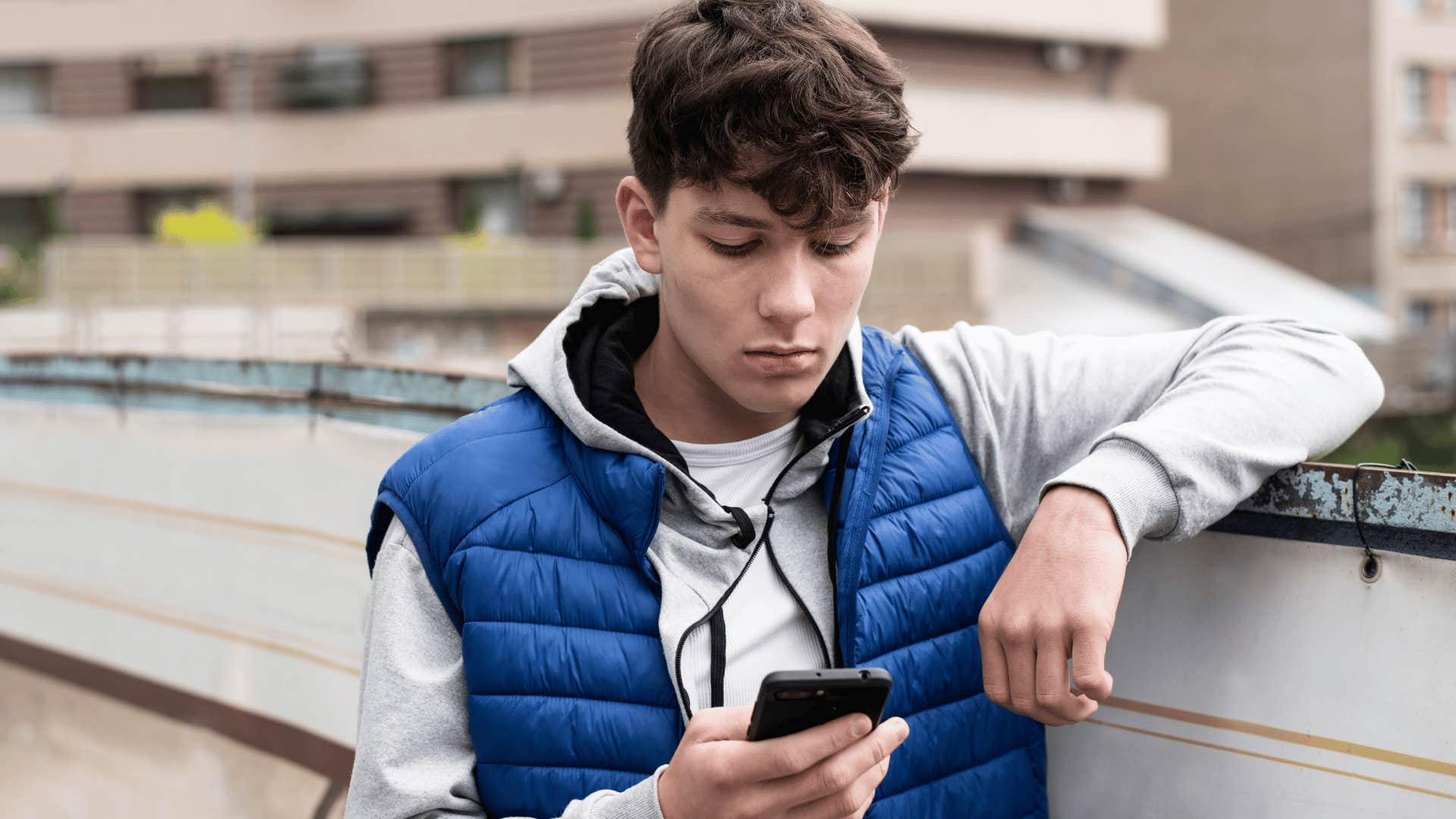8 Everyday Social Media Habits That Ruin Your Chances Of Finding Love
If you keep getting ghosted, take a look at the way you behave online.
 Andrej Lišakov | Pexels
Andrej Lišakov | Pexels If you're not familiar with ghosting, the meaning of the term is "the act or practice of abruptly cutting off all contact with someone (such as a former romantic partner) usually without explanation by no longer accepting or responding to phone calls, instant messages, etc." In other words, they disappear from your life without a word.
If you've been ghosted, possibly more than once, you're not alone! It can be exhausting and disheartening when one after another disappears without a word or reason.
For example, they probably weren't serious about dating or finding love. They could have been online because they were bored, liked to flirt, wanted an ego boost, or were cheating on their current partner. You can see none of these motivations for them reaching out and ghosting have anything to do with you. However, there are a few things you want to be aware of that can turn a person off, especially with your online habits. Some social media mistakes get you ghosted more frequently.
Here are 8 everyday social media habits that ruin your chances of finding love:
1. You're too clingy.
 Ekateryna Zubal | Shutterstock
Ekateryna Zubal | Shutterstock
Clinginess is not appreciated in any form, and it's one of the top reasons people go into ghost mode. You might hang on to their every post and comment too quickly. Give it a rest.
You don’t need to be first or look as if you are hyper-vigilantly watching their platforms. This bad habit is unappealing.
The Pew Research Center found that being clingy on social media can lead to being ghosted because it often creates a sense of overwhelming pressure and discomfort for the other person. This makes them feel like they need to distance themselves by cutting off communication to avoid further engagement, especially if they feel unable to set healthy boundaries or directly express their need for space.
2. You over-communicate.
 Dean Drobot | Shutterstock
Dean Drobot | Shutterstock
Are you messaging them too much on any platform? Over-communicating on social media is a bad habit people can find annoying. This also applies to texting.
It’s nice to stay in touch, but space it out. Don’t crowd someone by communicating too frequently; that’s likely to make them ghost you.
Sometimes, it’s good to skip a day. This is especially true if you are always reaching out or initiating.
Instead, you want to mirror their efforts. If they are over-communicating, feel free not to respond right away to set the pace and establish boundaries.
Over-communicating on social media can lead to ghosting because it can overwhelm the recipient with too many messages, making them feel pressured or suffocated. This can cause them to withdraw from the conversation entirely by simply not responding, effectively ghosting you. According to a 2023 study by Telematics and Informatics, this is especially true if the communication feels excessive or inappropriate for the relationship dynamic.
3. You don't show your "best" side.
 Cast of Thousands | Shutterstock
Cast of Thousands | Shutterstock
When you post a lot of unflattering details, people might get the wrong idea about who you are and lose interest. Nothing can dry up a conversation quite like lost attraction.
If this sounds like you, be selective about what you post to avoid ghosting. You can also change the settings of your more unflattering posts to specific groups so the new people you meet won't see them until you are ready for them to get to know that part of yourself.
4. You're overly-emotional in your posts.
 Opat Suvi | Shutterstock
Opat Suvi | Shutterstock
Are you always emoting about some topic in your social media posts? There’s nothing wrong with expressing yourself, but when you go on and on or constantly share raw emotions, it can be a turn-off.
Some people will do anything to avoid engaging in overly emotional displays, so if they spot this bad habit on your social media feeds, it could cause them to ghost you.
Being overly emotional in social media posts can lead to being ghosted, a 2020 study found. It can make others feel uncomfortable, overwhelmed, or manipulated, causing them to disengage from your content and avoid interacting with you, essentially ghosting you by not responding or engaging further.
5. You post expressive political beliefs.
 Prostock-studio | Shutterstock
Prostock-studio | Shutterstock
There are lots of people who use social media to express their political opinions. But if the person you are getting to know has opposing views, chances are they won't be interested in the messages you’re posting.
This could explain why they ghosted, but in this case, it is for the best. Opposing political viewpoints would be problematic for your compatibility in the long run, so let them disappear and avoid the drama.
6. You overstep privacy bounds.
 ShotPrime Studio | Shutterstock
ShotPrime Studio | Shutterstock
Digging through a person's history to learn about his romantic past is a surefire turn-off, especially if you bring things up or ask questions about what you found. This behavior makes you look insecure — like you are investigating them.
While you may be curious, this is not a way to earn their trust and may cause them to walk away and ghost. Instead, be smart about what you learn about them on social media and hold off asking too many questions in a row.
If there are things you feel you need to talk about, please ask only one big question per phone conversation or date. A study published by Imagination, Cognition, and Personality also found that why people choose to ghost can often be explained by the undesirable behavior of the person being ghosted—including, but not limited to, pushy, racist, or disrespectful actions.
7. You overshare.
 RBstock | Shutterstock
RBstock | Shutterstock
Sharing your budding romance on social media can be fun, especially at the beginning. You are excited about a new person, and you burst with enthusiasm.
The trouble is, if they are a more private person than you are, they might not want so much revealed publicly about what happens between the two of you — especially before your relationship is solidified.
Some people might get freaked out by the sheer number of posts you put up about them or your relationship. Share and enjoy with your friends about how things are going, but don’t overdo the public postings until you've been in a committed exclusive relationship for a little while.
8. You use social media to post mean or hurtful things.
 Marian Fil | Shutterstock
Marian Fil | Shutterstock
Here’s a good rule about what you share on social media: If you wouldn’t say it to someone face-to-face, don’t say it on social media. Whatever you do, don't hide behind the platform to communicate something hurtful or questionable.
Be smart and edit yourself. Think twice before you press "send".
Even if you think your new person isn’t into social media because they are not very active — which might cause you to post things you might not otherwise share — that doesn't mean they won't find out what you're posting other ways and be turned off by your bad habits.
For instance, They may have friends who might alert them about your online behavior. That’s a reason to be a bit more reserved and not take the chance of pushing them away unnecessarily.
Ghosting is often a painful and curt way to end a relationship. Many people choose to ghost someone to avoid awkward discussions about what makes them uncomfortable about another person.
One of the smartest things you can do for a new relationship is to discuss your social media habits and preferences. Talk about how you use social media and find out what they do. Talk about what he feels comfortable posting and what he thinks is going too far.
Having this discussion early establishes boundaries in your budding relationship — which can help you avoid problems later. Plus, it allows you to work through something without much emotional charge.
As an added benefit, engaging in this kind of conversation reveals how they handle discussions and negotiations. It also shows a little about your compatibility as a couple. Testing the waters gives you great insights into who they are and if their communication style works for you long-term.
Why wait to find out you're incompatible? Talk about your social media habits to determine if they are the one.
Being mean on social media can lead to ghosting because people often choose to abruptly cut off communication with rude, disrespectful, or otherwise unpleasant people, opting to avoid further interaction rather than confront or engage with negativity. A study published in the International Journal of Environmental Research and Public Health found that silence can be used to disengage from a toxic situation.
Ronnie Ann Ryan is an Intuitive Coach, Past Life Reader, and author of six books. She’s the creator of the free audio course How to Ask the Universe for a Sign and Get an Answer Within 24 Hours. She's been published on ABC, BBC, and NPR.

